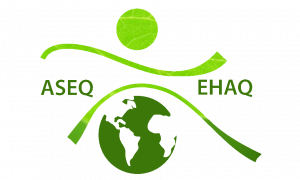Other sustainability initiatives
A special thank you to all the great individuals and teams we had the chance to encounter and discuss with!

We had the chance to discuss with Kelsey Eden Litwin, whose goal is to increase the visibility of sustainability initiatives on McGill campus and encourage community engagement.
The McGill Office of Sustainability provides the strategic guidance, support, and ressources to transition McGill into an institutional model of sustainability for society. In addition to overseeing the implementation of the McGill Climate & Sustainability Strategy, the Office of Sustainability provides opportunity for the McGill community to engage in sustainability on campus through certification programs, urban agriculture, workshops, and more. The Office also stewards McGill’s flagship Sustainability Projects Fund (SPF). It is the largest fund of its kind in Canada valued at $1 million annually, with the mandate to build a culture of sustainability on McGill campuses through the development and seed-funding of interdisciplinary projects.
Contact info: Link to Website
View a great 18 minute video presentation of the GLI by Naila Kuhlmann and Theresa Degenhard, and check out a brief introduction to the GLI by clicking on the image above!
The Green Labs Initiative @ The Neuro began as a group of students who grew frustrated with how the benefits of scientific research are outweighed by the significant environmental costs of research. We applied for a McGill Sustainability Projects Fund grant in 2018, and secured $12,000 to make infrastructural and cultural changes at The Neuro and beyond.
Over the past year, we implemented recycling programs for lab gloves and tip boxes, reduced the Styrofoam use at our cafeteria, encouraged the exchange of forsaken lab items in our “material swap” room, held numerous educational and outreach events, and partnered with an artist to transform lab waste into an installation piece exhibited on campus.
That’s where you come in: our funding has ended, but there’s so much more to be done. While we have made many positive changes at The Neuro and helped other departments kickstart similar initiatives, we want to ensure that our efforts outlast our time here. The Neuro does not have general recycling, and our current solutions are limited and lack long-term feasibility.
Your support will allow us to hire an environmental consulting group to facilitate partnership with a local company for long-term recycling. Additional funds will be allocated to ongoing efforts, including acquiring sustainable lab supplies and waste reduction solutions, continuing outreach and community events, and hosting information sessions across campus.
Please support our efforts to foster a sustainable research culture at McGill!
Contact info: Facebook page
Check out a brief introduction to SSE (by Nathalie Robitaille) by clicking on the image above!
We had the chance to discuss with Nathalie Robitaille, Executive Director of SSE and Environmental Health Advisor, and with Dr. Jean Zigby, President and Co-Founder of SSE.
SSE’s mission is to support and accompany healthcare establishments in reducing their environmental footprint and improving their sustainable practices. The vision of this NPO is to bring establishments to implement innovative practices that respect human health and ecosystems by adopting a participatory, critical and systemic approach.
Contact info: info@ssequebec.org
View a great video presentation of LPSS from their Facebook page by clicking on the image above. Check out Lena Zotova’s (President of La Planète s’invite en santé) short introduction video to her journey in climate action as a Medical student!
La Planète s’invite en santé (LPSS) is an interdisciplinary non-profit organisation uniting healthcare professionals and students who tackle climate and environmental issues in Québec. They use evidence-based health and social justice approaches to:
- Motivate more ambitious climate action of our decision-makers.
- Support healthier communities through sustainable environments.
- Stimulate carbon-neutral healthcare and sustainable clinical practice.
They work in partnership with local and provincial healthcare associations, unions and NGOs, and collaborate with leading environmental NGOs such as the David Suzuki Foundation and Climate Reality. See their mission, vision and main action areas here.
They have many flexible volunteer opportunities for students to invest and develop their skills in advocacy, project leadership, team coordination, external representation, communications (including social media), fundraising, IT, and many more! All interests and talents are welcome.
Please feel free to reach out to Lena Zotova (M.D., C.M. Candidate – Class of 2021, President of LPSS) at the email address below if you have any questions about the climate & health movement, or wish to get involved!
- Sign up to get involved here.
- Join their mailing list.
Contact info: la.planete.en.sante@gmail.com / Facebook / Twitter
Check out a brief introduction to Acting For Climate (by Nathan Biggs-Penton) by clicking on the image above!
We had the chance to discuss with Nathan Biggs-Penton, a core member of the Acting For Climate in Europe and the co-founder / co-director of its branch in Montreal.
Started in Norway in 2015, with a division in Montreal since 2019 (initiated by Agathe Bisserier, Nathan Biggs-Penton and Adrien Malette-Chénier), the Acting For Climate group seeks to create a network of artists and activists to nurture collaboration, equity, and admiration of nature for a sustainable future. The Acting For Climate tree is growing, both as a professional stage-performance company, with a European branch, and a Montreal branch, and as a community platform for arts and sustainability.
Here are some outstanding videos of their work and performances:
Contact info: actingforclimatemontreal@gmail.com / Facebook and Instagram @actingforclimate
Check out a brief introduction to Labconscious (by Nicole Kelesoglu) by clicking on the image above!
Nicole Kelesoglu, editor and blogger, has previous lab experience and is a science writer with subject expertise in epigenetics and sustainable lab practices. Labconscious is an open resource for the life science community to reduce laboratory waste, use green chemistry, conserve water and save energy.
Contact info: info@labconscious.com / Twitter
Check out a brief introductory video to EHAQ by clicking on the image above!
At the Environmental Health Association of Québec, our mission is to support people experiencing multiple chemical sensitivities by providing resources, education, advocacy and awareness. In order to increase the accessibility of our society for those with environmental sensitivities such as multiple chemical sensitivities, we must transition towards environmentally friendly, least toxic, fragrance free products and ecological strategies for daily life, to ensure that all people can have access to public spaces, including clinics and hospitals. Our team spans many disciplines, working on outreach, education, research, medicine, and law, to name a few, in order to help make this shift and support individuals with environmental sensitivities/multiple chemical sensitivity.
We are already experiencing climate change in Canada. Heat waves are getting hotter and occurring more frequently. Clinically, this increases the risk for heat-related health events, such as heat cramps, heat exhaustion, and life-threatening heat strokes. We know that it’s the burning of fossil fuels and industrial processes that have contributed almost 80% of the increase in greenhouse gases emissions responsible for global warming. Not only do these factors influence global warming, but now the World Health Organization has identified air pollution as ranking among the top five risk factors for developing chronic non-communicable diseases, along with tobacco use, harmful use of alcohol, unhealthy diets and physical inactivity. These diseases include cardiovascular, respiratory and neurodegenerative diseases as well as neurodevelopmental disorders such as intellectual disability, autism spectrum disorder, attention deficits, hyperactivity, and learning disabilities. Pollution has an impact on different medical conditions because it induces or effects the shared pathophysiological mechanisms: oxidative stress, systemic inflammation and the resulting cell damage, leading to cell dysfunction or death. The risk for these disorders is also associated with genetic polymorphisms for detoxification. This risk from pollution exposure is dose related. For example, the risk is increased depending on how close one lives to a major roadway. Nevertheless, we can still detect positive associations from exposure levels below the present air-quality guidelines or standards.
In addition to these risks we are now seeing an emerging phenomenon: chemically induced oxidative stress and systemic inflammation that can initiate sensitization of chemosensitive receptors. The result is a condition called multiple chemical sensitivity (MCS). These patients also demonstrate oxidative stress, systemic inflammation, an increased likelihood of polymorphisms for poor detoxification and abnormal processing of chemical odors. More than one million Canadians have MCS. Unfortunately, a lack of education and knowledge on how to provide medical care for these people has been documented in the report of the recent Task Force for Environmental Health established by the Ontario Ministry of Health and Long-Term Care. In fact, calls for improvements in medical education in environmental health have been made twice by the US Institute of Medicine as well as professional bodies of pediatricians, obstetricians and gynecologists, and family physicians.
Regrettably, this education is still largely absent. Proof of this comes from the results of a study published in 2019 in the Canadian Family Physician. The authors examined the environmental health training, attitudes and knowledge of first- to third-year family medicine residents in 4 Ontario training programs. The result? Residents lack both training and mentorship. For example, even though 92% of the residents believed that taking an environmental exposure history is important, only 18% of them had specific training in how to do so. Even more significant, the residents rated their supervisors’ knowledge of environmental health as low. Yet, they continued to use supervisors as their second most frequent source of information when confronted with a clinical problem. The most commonly reported resource used to answer a clinical environmental health question was the Internet. In fact, the most commonly used Web resource was the subscription site UpToDate.
The section on MCS is glaringly not “up to date”. The literature citations are inadequate, with no mention of:
- the multiple case-control studies demonstrating chemosensitive receptor sensitization,
- the genetic predisposition to a poor detoxification phenotype
- measured oxidative stress and systemic inflammation,
- and the abnormal odour processing in the brain, as demonstrated by functional brain scan imaging studies, and supported by systematic reviews.
As a result, the authors erroneously conclude that MCS is not a medical condition and should be treated as a somatoform disorder. As a result, the Ontario Task Force on Environmental Health, commissioned by the Ministry of Health and Long-Term Care, Ontario, reported that MCS patients experience significant stigma, discrimination and lack of accommodation from health care providers, due to the lack of recognition that they have a real physical illness. The Task Force concluded that raising this awareness is a critical first step in improving care.
Ultimately, there are considerable gaps in knowledge, effective teaching, and clinical practice skills required to prevent and manage exposure-related conditions. We know that there are barriers to change in educating medical students and residents, including lack of time or expertise. Despite these challenges, we need faculty champions and institutional leadership to overcome these recognized barriers. The time has come to integrate environmental health into medical training.
Contact info: bureau@aseq-ehaq.ca /office@aseq-ehaq.ca
You are a healthcare professional, a student, or have experience in the fields of sustainability and healthcare? Feel free to share your experience with us, or simply introduce your initiative to be featured on our platform and to collaborate!





